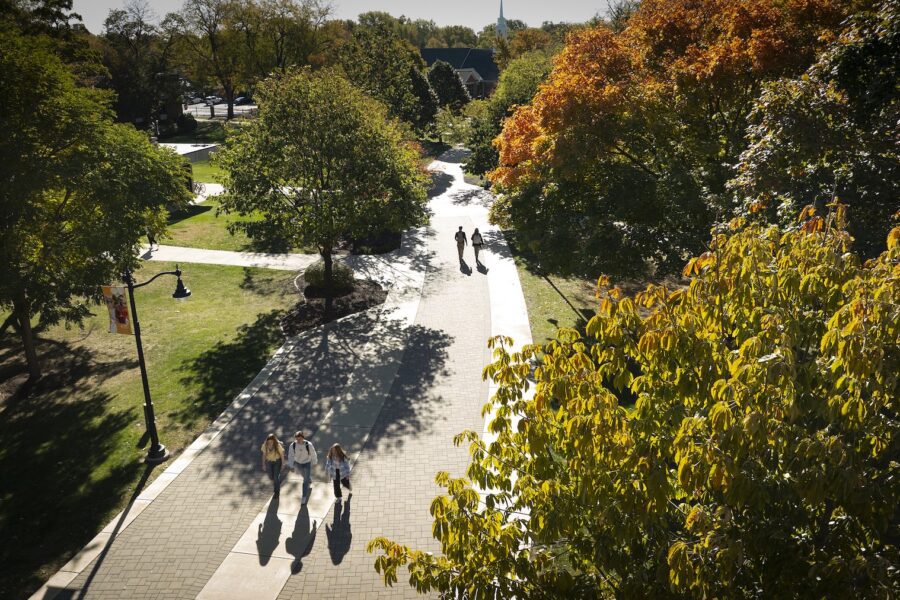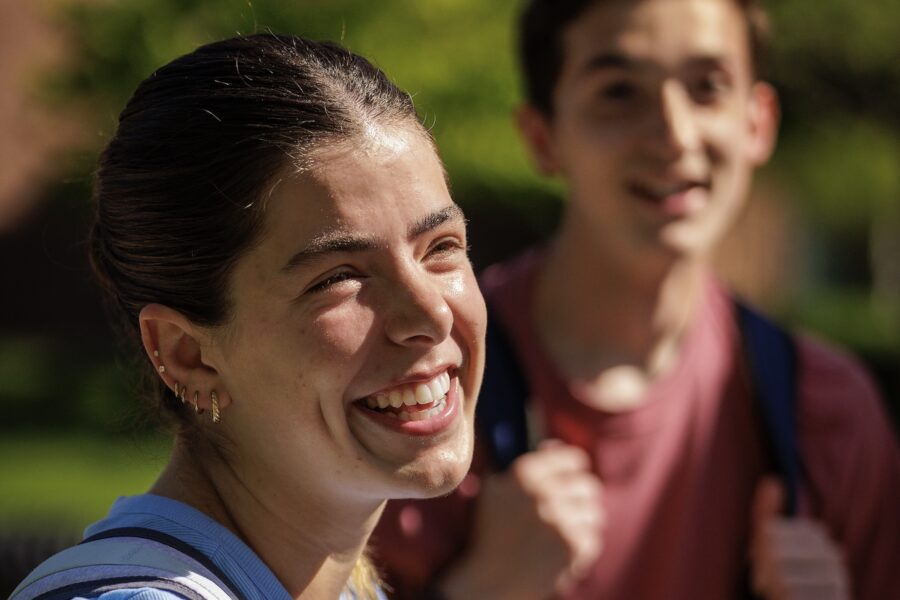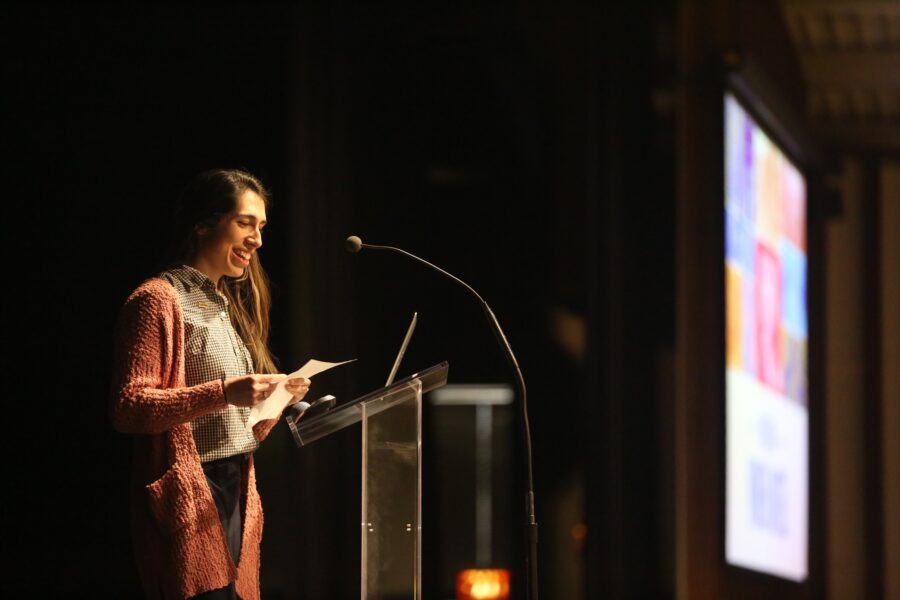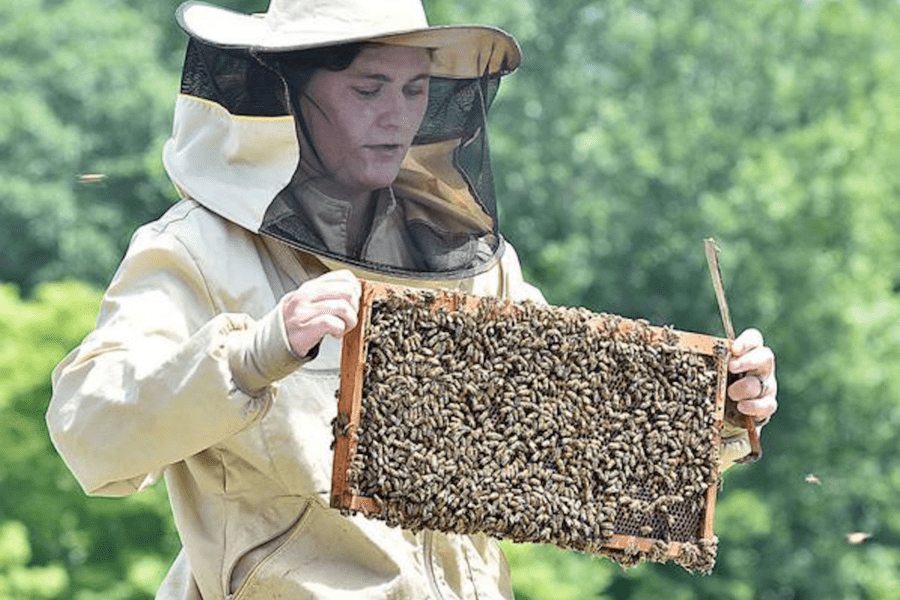
Dr. Parry Kietzman knew she wanted to be an entomologist before she even knew what the word meant.
“When I was little and my dad needed to keep me occupied, he’d ask if I wanted to go out to the garden and look for worms,” she says. “It always worked. What kind of kid gets excited about worms?”
Born in Pittsburgh, Dr. Kietzman’s fascination with the details of God’s creation continued throughout her childhood in Honduras, where her father worked as an Anglican missionary and church planter. It continued upon her return to the United States, as honeybees became the focus of a first-place state science fair project.
“I taught myself beekeeping in high school,” she explains. “I learned how to keep a hive so I could design an experiment to determine whether bees can tell time. It turns out they can — though our neighbors weren’t too excited about the swarms of bees in my backyard.”
Dr. Kietzman’s passion for research eventually led her to a degree in biology at Wheaton College and ultimately a Ph.D. in entomology (the study of insects) at the University of California Riverside, where her dissertation focused on communication in honeybees.
For her Ph.D., Dr. Kietzman studied group decision-making in honeybees and designed experiments to understand how the bees communicate.
“There’s not one individual in the hive making decisions,” she says. “It’s all a collective process.”
Understanding how hive insects like bees make group decisions and how patterns emerge from simple processes can have applications from robotics to understanding neurons in the human brain.
After her Ph.D., Dr. Kietzman studied bee genetics at North Carolina State University and then worked for a nonprofit, designing curriculum and teaching beekeeping to rural communities in West Virginia. She eventually returned to academia in a position at Virginia Tech investigating how to make cattle pastures more ecologically sustainable, particularly for important pollinators like honeybees.
At Virginia Tech, she volunteered to teach a course on ecological agriculture. Her graduate school work had inspired a desire to research and teach at the same time.
“At the end of the semester, an upperclassman told me I was the first professor who had bothered to learn their name,” she says. “I knew that wherever I ended up teaching, it wouldn’t be a place like that.”
Dr. Kietzman is finishing her first year of teaching at Olivet, where she teaches classes on invertebrate zoology, animal behavior and conservation biology for the biology department in the Walker School of STEM. She also leads students on ecology field courses to Costa Rica and Alaska. The experience so far, she says, has been one of “profound joy.” She loves the balance of research and relationship at Olivet and, she admits, “the chance to get people excited about bees.”
Dr. Kietzman’s goal for her students is for them to find and maintain a sense of wonder. For zoology majors in particular, her focus is teaching her students how to find and evaluate information and distinguish what makes an experiment reliable and data credible.
“There are so many insects, and they’re all so interesting and unique,” she explains. “Missing the hand of the Creator in that is missing a great deal of joy.”
Christians can learn a great deal from the insect world, Dr. Kietzman asserts. It’s a prospect that excites her.
“Insects are solving so many problems on Earth that we don’t even know about, and we have the privilege of not knowing about these problems because insects are busily solving them,” she says. “Can’t you feel the Lord’s pleasure in that?” 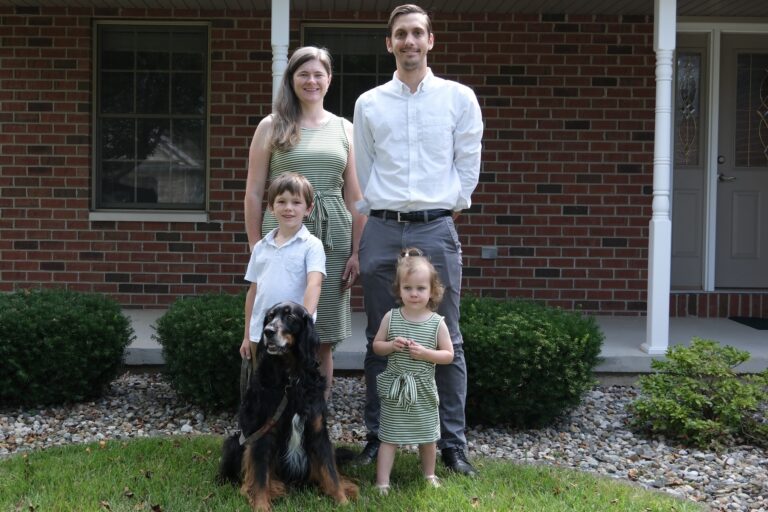
Outside the classroom, Dr. Kietzman has begun research on pollinators in the Olivet Biological Sanctuary and will continue that work with a student over the summer. She and her husband, Ben, a physicist and programmer, met on a blind date in college and have two children: Hal, 7, and Flora, 3. The family worships at Manteno Church of the Nazarene.
When Dr. Kietzman isn’t studying insects or playing the violin or bagpipes, she can often be found on horseback. A rider since she was 9, she is passing her love on to her kids — in addition to volunteering as sponsor of the Olivet Equestrian Club.
For more information about the Martin D. Walker School of STEM, visit Olivet.edu/academics/colleges/walker-school-stem.


